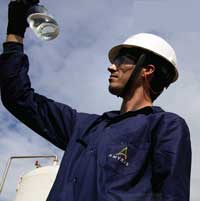Amyris ties up with South Korea's CJ for farnesene output

South Korea-based CJ CheilJedang Corporation is expanding its horizons having tied up with US PHA producer Metabolix in March, followed by its latest venture with US bioscience company Amyris.
Both companies have signed a Memorandum of Understanding (MOU) to support large-scale manufacturing of Amyris’s farnesene in existing CJ facilities. The arrangement would enable Amyris to utilise CJ’s manufacturing capacity while minimising the capital investment necessary to support projected near and mid-term demand for product applications using farnesene. The partnership is also expected to include the opportunity for CJ Bio (division of CJ CheilJedang) to market select Amyris products in Asian markets as well as the potential for Amyris to develop several products for CJ Bio. The companies are targeting completing a definitive agreement by the first week of August 2016.
“We are very pleased with the innovative approach of CJ CheilJedang, to support quickly ramping up our farnesene capacity with minimal capital investment and with the collaborative partnership to market some of our products in Asia,” said John Melo, President/CEO of Amyris. “This partnership completes our commercialisation strategy by providing us the ability to meet our farnesene demand from our current partners without new investment from Amyris and underpins our expected capacity needs to meet farnesene demand that would require building 3-4 new plants the size of our Brotas facility (in Brazil) by 2020.”
Farnesene is a renewable chemical building block that can be used to produce a wide range of renewable products. Amyris produces farnesene via a proprietary yeast fermentation process.
Amyris is also working with Japanese chemicals firm Kuraray to use farnesene to replace petroleum-derived feedstock in the production of specified classes of high-performing polymers for the tyre industry. Initial testing indicates that its renewable hydrocarbon provides differentiated performance for rubber tyres by reducing rolling resistance, which improves fuel economy, without reduction in tyre wear.
Meanwhile, in March this year, CJ CheilJedang also entered into a commercial manufacturing agreement with Metabolix http://www.plasticsandrubberasia.com/mar2016/materials17.html for its speciality PHAs, including its recently launched amorphous PHA. Part of the agreement will see CJ fund, construct and operate a 10,000-tonne PHA production unit at Metabolix's Iowa, US, facility based on PHA technology.
(PRA)Copyright (c) 2016 www.plasticsandrubberasia.com. All rights reserved.












































